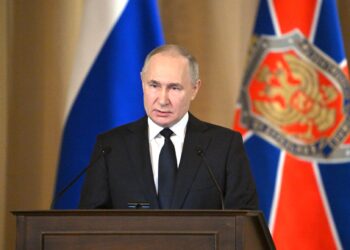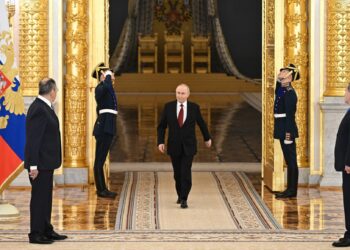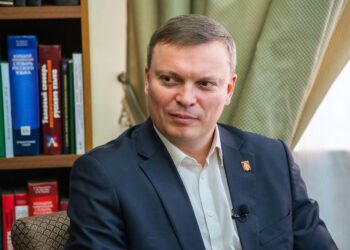MOSCOW (Realist English). Russia’s rapid digital transformation has become one of the central directions of national development, shaping government services, industry and daily life, Deputy Prime Minister and Government Chief of Staff Dmitry Grigorenko said at the National Center “Russia.” He spoke during the program “Platform of the Future: 100 Projects of Russia. Digital.”
“We are living through the fourth industrial revolution — the revolution of data and digitalisation — which is changing everything: economic processes, public services and how people relate to work, daily life and the world around them,” Grigorenko said.
He underscored the growing reliance on artificial intelligence, noting that in the public sector a modern service is now one that is not only digitised but personalised. AI, he said, already plays a major role in government decision-making — including in Russia’s national-projects management system, where predictive algorithms can forecast risks with 96% accuracy. This allows the government to adjust strategies proactively rather than react after failures occur.
Grigorenko also highlighted Russia’s “digital sovereignty,” pointing to domestic marketplaces, search engines, AI language models, data centers and messaging platforms. “Fifteen years ago it was hard to imagine this level of digital comfort,” he said, referencing the millions of daily users of food delivery and ride-hailing services.
Biometrics, telecom and robotics
The deputy prime minister outlined several priority areas. Russia, he said, is now among global leaders in biometric technologies, having created a state-run system for storing encrypted biometric data with multi-layer protection.
In telecom infrastructure, Russia is developing a low-orbit satellite constellation to deliver high-speed internet across the country. In logistics and warehousing, he noted that robotics is already delivering “multiple times greater efficiency” than human labor, and that integrating AI into robotics will further expand automation capabilities.
Drones and the future workforce
Grigorenko devoted a separate section of his remarks to unmanned systems, which he said are transforming agriculture, construction and logistics. While acknowledging a growing shortage of skilled workers, he argued that digitalisation does not eliminate professions but reshapes them, opening new opportunities for IT specialists and technical professionals.
He urged students to approach career choices consciously, stressing that digital skills are becoming essential in nearly every modern field.
“However much we praise or criticise digitalisation, people remain at the center,” he said. “Digital technologies are tools — and how they are used depends entirely on us. Their potential is far greater and their impact on quality of life far stronger than most other instruments.”
The National Center “Russia” is continuing its thematic series “Platform of the Future: 100 Projects of Russia,” dedicated to progress toward the country’s national development goals under Presidential Decree No. 309. Speakers, including senior government officials, highlight the practical results of national projects and their impact on everyday life.


















